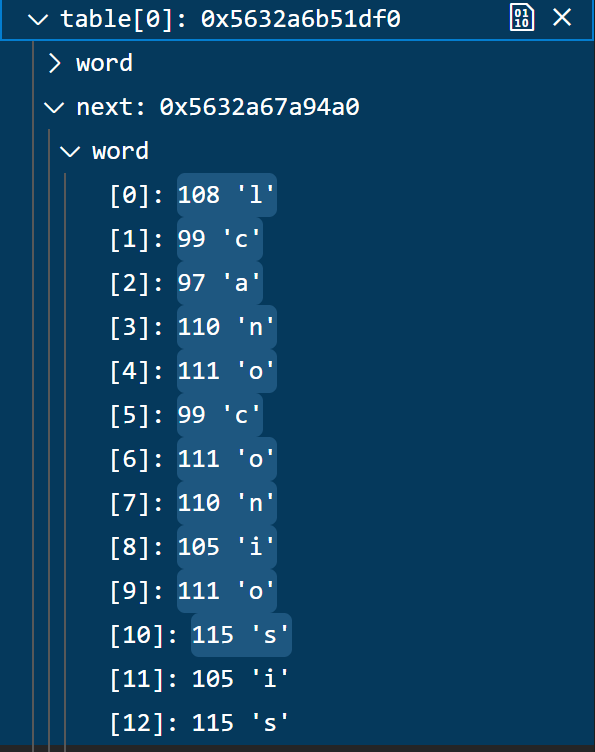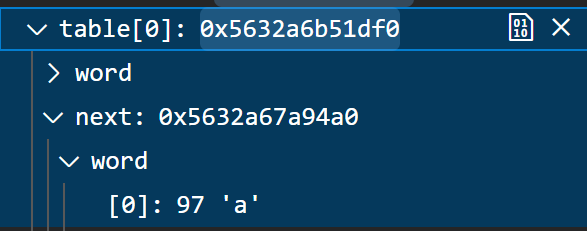bool load(const char *dictionary)
{
// TODO
FILE *fdict = fopen(dictionary, "r");
if (fdict == NULL)
{
return false;
}
// create container string to hold word
char *string = malloc(sizeof(LENGTH+1));
if (string == NULL)
{
return false;
}
// initialize new node
node *n = malloc(sizeof(node));
if (n == NULL)
{
return false;
}
//condition begins by scanning file
while (fscanf(fdict, "%s", string) != EOF)
{
// assign values to n
n->next = NULL;
strcpy(n->word, string);
// obtain hashcode for table
int hcode = hash(n->word);
// if no elements at hcode, fill with n. else, attatch table[hcode] as next and slot n as table[hcode].
if (table[hcode] == NULL)
{
table[hcode] = n;
}
else
{
n->next = table[hcode];
table[hcode] = n;
}
count++;
n = malloc(sizeof(node));
}
free(n);
//n = NULL;
free(string);
fclose(fdict);
return true;
}
Load() was working perfectly, except that it would not load the first word in the large dictionary, "a". I debugged for a bit and found that after initiating fscan() at the point in the loop where the longest word ("pneumonoultramicroscopicsilicovolcanoconiosis") would be scanned by fscan(), the last 12 characters of the longest word would immediately replace "a" where it existed in its linked list on the hash table before any data is actually allocated into a linked list.
Node after scanning long word:
The memory address remains the same, for all intents and purposes it is the same node, but now the n->word value would be changed to "lcanoconiosis". Does anyone know what might cause this? I'm completely at a loss, as nothing touches the hash table at this point in the loop. Theoretically I could hardcode an exception in check() to always count "a", but I'd rather know what's happening in case this happens again.
EDIT: included text of code instead of code screenshot (10/5/23)
